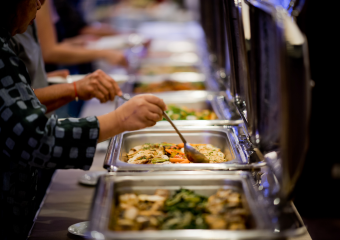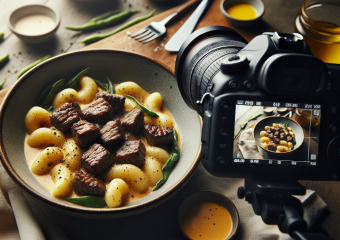6 foods to eat when you’re on an anti-inflammatory diet – VOGUE India

“If eating certain foods is difficult, supplements can fill in the gaps,” agrees Wilson. “There are a wide variety of fibre supplements, from Metamucil to fibre sodas, fish-oil supplements from reputable companies like Nordic Naturals, and refrigerated/cold-storage probiotics.”
That being said, changing your eating habits and aiding those efforts with supplements is the more holistic, and thus effective, approach. To help you on your healthy eating mission, here are six foods with the potential to lower inflammation.

Salmon and Sardines
Fish, seeds, and nuts are anti-inflammatory essentials. “Omega-3 fatty acids can play a role in mediating (moderating and/or lessening) an inflammatory response in the body,” says Wilson. Fatty fish like mackerel and tuna—along with flaxseeds, chia seeds, and various nuts—can also provide your daily dose of omega-3. “Regular consumption of nuts is associated with lower levels of inflammation and reduced risk of cardiovascular diseases,” confirms Sakaida.
Green Tea
Your afternoon iced matcha just got even more appealing. Dr Andrew Weil (creator of the previously mentioned Dr Weil Anti-inflammatory Diet) recommends reaching for green tea for its protective antioxidants. Green tea’s high volume of catechins (a.k.a. flavonoids, a class of polyphenols found in plants) is thought to fight inflammation. If you’re a fan of matcha—hyperconcentrated, high-quality green tea powder—even better.

Berries
Berry-girl is more than a romantic approach to makeup; it’s also a means of balancing the body and eliminating oxidative stress (high levels of reactive oxygen species that can damage internal structures and trigger inflammation). Berries like raspberries, blackberries, and blueberries contain protective phytonutrients that Dr Weil recommends to prevent and ease inflammation. Plus, they’re delicious and easy to incorporate into your routine via snacking, smoothies, and throw-on salad toppings.
Whole Grains
Fibre is thought to reduce inflammation (along with cholesterol and blood sugar) by balancing your gut pH and permeability. And, as we’ve learned, a happy gut makes for a better brain. “Whole grains—such as oats, quinoa, and brown rice—are high in fibre, vitamins, and minerals, which can all help reduce inflammation,” says Sakaida. “They are also associated with a lower risk of chronic diseases such as type 2 diabetes and cardiovascular disease.”
Turmeric
While a number of herbs and spices are linked to lower inflammation, turmeric reigns supreme. You can thank the polyphenol curcumin, the root’s active compound, for its antioxidant effects. Opt for a golden milk latte, shave some over a salad, or simply incorporate the spice into your daily dishes for an instantaneous immune boost—and improved digestion.

Extra-Virgin Olive Oil
Seed oils may be a dietary no-go, but extra-virgin olive oil can propel you toward an undue-inflammation-free existence. The oil is a source of healthy fat and has been proven to reduce inflammatory markers, thanks (again) to its antioxidants, specifically oleocanthal (which has been proven to have anti-inflammatory effects similar to ibuprofen).

The takeaway? Food is literally medicine. Snack accordingly!
This story first appeared on vogue.com
Also read:
Kale juice is the anti-inflammatory drink you should add to your diet
This ingredient is anti-inflammatory, prevents hair loss, and has more vitamin D than milk





